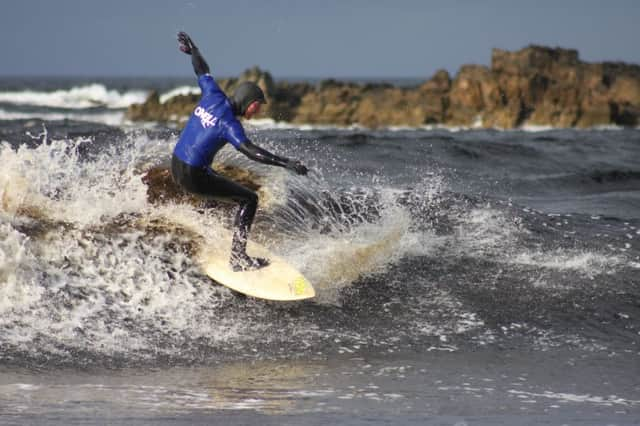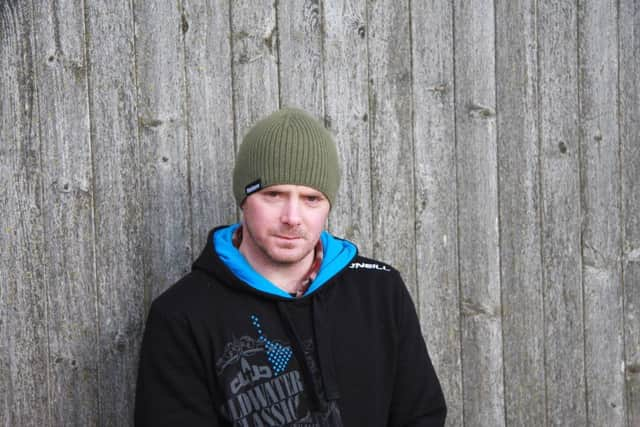Roger Cox: Could Scottish surfers make the 2020 Olympics?


Later this year, there’s a chance – and at the risk of tempting fate, I’ll even go so far as to call it a decent chance – that surfing could be announced as an official Olympic sport for the 2020 games in Tokyo. Last September it was confirmed as one of eight new sports to be given serious consideration, out of an initial longlist of 26, and in August the International Olympic Committee should confirm which of the remaining applicants have been successful, following the 129th IOC Session in Rio.
The last few times surfing applied for Olympic recognition it was turned down, largely on the grounds that artificial wave technology was not yet sufficiently advanced. (Actual in-the-sea-surfing was never going to work at the Olympics as five-day flat spells would have played havoc with the TV schedules.) Now, though, serious artificial wave pools are springing up all over the world and the best of them are capable of serving up waves that allow true, state-of-the-art surfing. So yes, by 2020 we may all be tuning in to find out whether surfing can steal the show at the summer Olympics in the same way snowboarding has dominated the last few winter games. We might even get to hear quintessential establishment figures like Gary Lineker and Clare Balding weighing in on the relative aesthetic merits of old-school power surfing versus new-school fins-free acrobatics.
Advertisement
Hide AdAdvertisement
Hide AdAll of which feels a little surreal. Surfing, after all, was always supposed to be an expression of the counterculture, and yet here it is, on the verge of being officially absorbed into the mainstream. Purists will doubtless gnash their teeth and tear their matted hair at the prospect of thousands of wannabe wave-sliders hot-footing it to their local beach, having been inspired by what they’ve seen on the telly (or smart watch or VR goggles or whatever), but the cat’s been out of the bag for a while now – it’s estimated that there are currently in excess of 35 million surfers worldwide. Surfing is never going to be a niche sport again, no matter how much those of us who remember the good old days might want it to be.


And if surfing does make it to the Olympics, will we have a British team to cheer on? We certainly have enough talented surfers in our wave-rich archipelago to give the superstars of the USA and Australia a few things to think about, and – just as importantly – it also seems as if the various surfing federations of these islands are well on their way to hammering out how such a team might be formed.
On 29 March, there was a meeting of the home nations’ governing bodies – the Scottish, English, Welsh and Channel Islands Surfing Federations (for reasons too complicated to go into here, Northern Ireland falls under the jurisdiction of the Irish Surfing Association). Among the 23 items on the agenda (surf admin, like any kind of admin, is hard yakka) there was a proposal to look at “management and selection process for British teams for the Olympic Games 2020”. This, it has now been decided, will be “managed by a panel made up of board members from the respective home nations” which all sounds pretty equitable. So after a lengthy period in which surfing in the UK has been at administrative sixes and sevens, now – as William Watson, president of the Scottish Surfing Federation puts it – “the old alliance has been rekindled”.
More immediately, today and tomorrow should see the 2016 Scottish Surfing Championships contested at one of the many world class surf breaks around Thurso. At time of writing the forecast is for a long-interval west-north-west swell somewhere in the five-to-eight foot range. Contest organisers will be hoping it will be powerful enough (and northerly enough) to provide contestable waves at Thurso East, home of the famous, fast-breaking right-hander, but failing that there’s always the nearby swell magnet of Brims Ness, which is more exposed to swells from the west and can often throw up a hollow, head-high wave when Thurso East is flat.
Earlier this week, I caught up with reigning Scottish champ Chris Noble as he was heading to the beach for an evening surf. Last year, although he’d more than earned his place on the Scottish surfing team, Noble chose not to compete at any ISA events due to work and family commitments. Any chance of him representing his country on the world stage this year, if he does well enough over the weekend?
“Possibly,” he says. “We’ll see how it goes.”